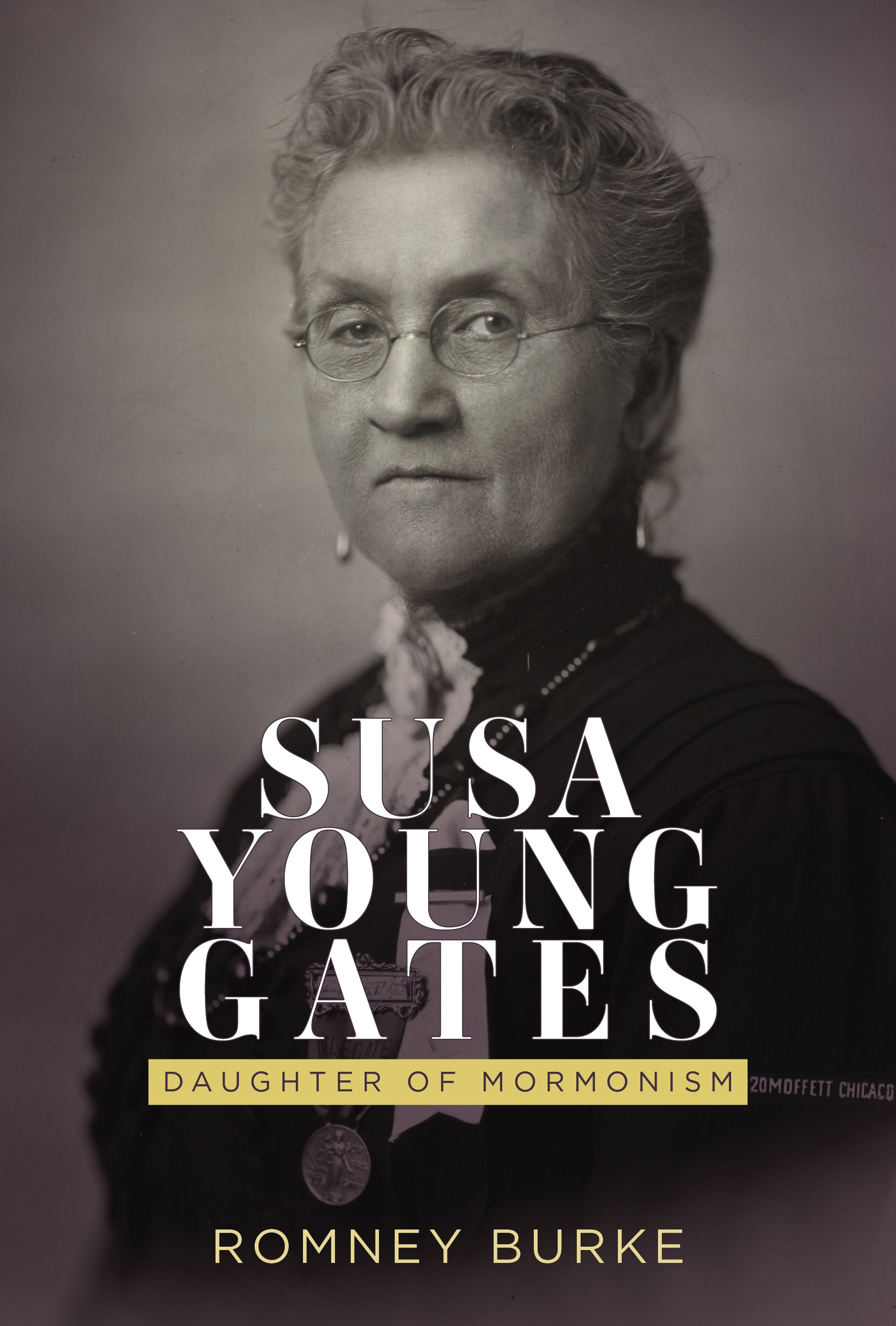Glorious in Persecution
Glorious in Persecution:
Joseph Smith, American Prophet, 1839–1844
Martha Bradley-Evans
Escaping imprisonment in Missouri in 1839, the Mormon prophet Joseph Smith quickly settled with family and followers on the Illinois banks of the Mississippi River. Under Smith’s direction, the small village of Commerce soon mushroomed into the boomtown of Nauvoo, home to 12,000 and more members of the Church of Jesus Christ of Latter-day Saints.
For Smith, Nauvoo was the new epicenter of the Mormon universe: the gathering place for Latter-day Saints worldwide; the location of a modern-day Zion; the stage upon which his esoteric teachings, including plural marriage and secret temple ceremonies, played out; and the locus of a theocracy whose legal underpinnings would be condemned by outsiders as an attack on American pluralism.
In Nauvoo, Smith created a proto-utopian society built upon continuing revelation; established a civil government that blurred the lines among executive, legislative, and legal branches; introduced doctrines that promised glimpses of heaven on earth; centralized secular and spiritual authority in fiercely loyal groups of men and women; insulated himself against legal harassment through creative interpretations of Nauvoo’s founding charter; embarked upon a daring run at the US presidency; and pursued a vendetta against dissidents that led eventually to his violent death in 1844.
The common thread running through the final years of Smith’s tumultuous life, according to prize-winning historian and biographer Martha Bradley-Evans, is his story of prophethood and persecution. Smith’s repeated battles with the forces of evil—past controversies transformed into mythic narratives of triumphant as well as present skirmishes with courts, politicians, and apostates—informed Smith’s construction of self and chronicle of innocent suffering.
“Joseph found religious and apocalyptic significance in every offense and persecution—actual or imagined,” writes Bradley-Evans, “and wove these slights into his prophet-narrative. Insults became badges of honor, confirmation that his life was playing out on a mythic stage of opposition. By the time Joseph led his people to Illinois, he had lived with the adulation of followers and the vilification of enemies for more than a decade. Joseph’s worst challenges often proved to be his greatest triumphs. He forged devotion through disaster, faith through depression. Joseph interpreted each new event as God’s will set against manifestations of evil opposed to the restoration of all things.”
Bradley-Evans’s ground-breaking portrait of Smith goes farther than any previous biography in explaining the Mormon prophet and the mystery of his appeal.
hardback: $29.00 | ebook: $9.99
Glorious in Persecution:
Joseph Smith, American Prophet, 1839–1844
Martha Bradley-Evans
Escaping imprisonment in Missouri in 1839, the Mormon prophet Joseph Smith quickly settled with family and followers on the Illinois banks of the Mississippi River. Under Smith’s direction, the small village of Commerce soon mushroomed into the boomtown of Nauvoo, home to 12,000 and more members of the Church of Jesus Christ of Latter-day Saints.
For Smith, Nauvoo was the new epicenter of the Mormon universe: the gathering place for Latter-day Saints worldwide; the location of a modern-day Zion; the stage upon which his esoteric teachings, including plural marriage and secret temple ceremonies, played out; and the locus of a theocracy whose legal underpinnings would be condemned by outsiders as an attack on American pluralism.
In Nauvoo, Smith created a proto-utopian society built upon continuing revelation; established a civil government that blurred the lines among executive, legislative, and legal branches; introduced doctrines that promised glimpses of heaven on earth; centralized secular and spiritual authority in fiercely loyal groups of men and women; insulated himself against legal harassment through creative interpretations of Nauvoo’s founding charter; embarked upon a daring run at the US presidency; and pursued a vendetta against dissidents that led eventually to his violent death in 1844.
The common thread running through the final years of Smith’s tumultuous life, according to prize-winning historian and biographer Martha Bradley-Evans, is his story of prophethood and persecution. Smith’s repeated battles with the forces of evil—past controversies transformed into mythic narratives of triumphant as well as present skirmishes with courts, politicians, and apostates—informed Smith’s construction of self and chronicle of innocent suffering.
“Joseph found religious and apocalyptic significance in every offense and persecution—actual or imagined,” writes Bradley-Evans, “and wove these slights into his prophet-narrative. Insults became badges of honor, confirmation that his life was playing out on a mythic stage of opposition. By the time Joseph led his people to Illinois, he had lived with the adulation of followers and the vilification of enemies for more than a decade. Joseph’s worst challenges often proved to be his greatest triumphs. He forged devotion through disaster, faith through depression. Joseph interpreted each new event as God’s will set against manifestations of evil opposed to the restoration of all things.”
Bradley-Evans’s ground-breaking portrait of Smith goes farther than any previous biography in explaining the Mormon prophet and the mystery of his appeal.
hardback: $29.00 | ebook: $9.99
Glorious in Persecution:
Joseph Smith, American Prophet, 1839–1844
Martha Bradley-Evans
Escaping imprisonment in Missouri in 1839, the Mormon prophet Joseph Smith quickly settled with family and followers on the Illinois banks of the Mississippi River. Under Smith’s direction, the small village of Commerce soon mushroomed into the boomtown of Nauvoo, home to 12,000 and more members of the Church of Jesus Christ of Latter-day Saints.
For Smith, Nauvoo was the new epicenter of the Mormon universe: the gathering place for Latter-day Saints worldwide; the location of a modern-day Zion; the stage upon which his esoteric teachings, including plural marriage and secret temple ceremonies, played out; and the locus of a theocracy whose legal underpinnings would be condemned by outsiders as an attack on American pluralism.
In Nauvoo, Smith created a proto-utopian society built upon continuing revelation; established a civil government that blurred the lines among executive, legislative, and legal branches; introduced doctrines that promised glimpses of heaven on earth; centralized secular and spiritual authority in fiercely loyal groups of men and women; insulated himself against legal harassment through creative interpretations of Nauvoo’s founding charter; embarked upon a daring run at the US presidency; and pursued a vendetta against dissidents that led eventually to his violent death in 1844.
The common thread running through the final years of Smith’s tumultuous life, according to prize-winning historian and biographer Martha Bradley-Evans, is his story of prophethood and persecution. Smith’s repeated battles with the forces of evil—past controversies transformed into mythic narratives of triumphant as well as present skirmishes with courts, politicians, and apostates—informed Smith’s construction of self and chronicle of innocent suffering.
“Joseph found religious and apocalyptic significance in every offense and persecution—actual or imagined,” writes Bradley-Evans, “and wove these slights into his prophet-narrative. Insults became badges of honor, confirmation that his life was playing out on a mythic stage of opposition. By the time Joseph led his people to Illinois, he had lived with the adulation of followers and the vilification of enemies for more than a decade. Joseph’s worst challenges often proved to be his greatest triumphs. He forged devotion through disaster, faith through depression. Joseph interpreted each new event as God’s will set against manifestations of evil opposed to the restoration of all things.”
Bradley-Evans’s ground-breaking portrait of Smith goes farther than any previous biography in explaining the Mormon prophet and the mystery of his appeal.
hardback: $29.00 | ebook: $9.99
Martha Bradley-Evans is a professor in the College of Architecture and Planning and Associate Vice President of Academic Affairs and Dean of Undergraduate Studies at the University of Utah, Salt Lake City. From 2002 to 2011, she served as Dean of the Honors College. She is the recipient of the University of Utah Distinguished Teaching Award, the University Professorship, the Student Choice Excellence in Teaching Award, the Bennion Center Service Learning Professorship, the Park Fellowship, and the Borchard Fellowship. She previously taught history at Brigham Young University (Provo, Utah), where she received a Teaching Excellence Award. She has been vice chair of the Utah State Board of History, chair of the Utah Heritage Foundation, president of the Mormon History Association, and co-editor of Dialogue: A Journal of Mormon Thought. In 2013, she received the Leonard Arrington Award for Meritorious and Distinguished Service to Mormon History from the Mormon History Association; and in 2014 was named a Fellow of the Utah State Historical Society. Her publications include Kidnapped from That Land: The Government Raids on the Short Creek Polygamists; Four Zinas: A Story of Mothers and Daughters on the Mormon Frontier; Pedestals and Podiums: Utah Women, Religious Authority, and Equal Rights; A History of Beaver County; A History of Kane County; A History of Summit County; Sandy City: The First 100 Years; Z.C.M.I.: America’s First Department Store; and Plural Wife: The Story of Mabel Finlayson Allred.
Biography, History
ISBN: 978-1-56085-264-3






